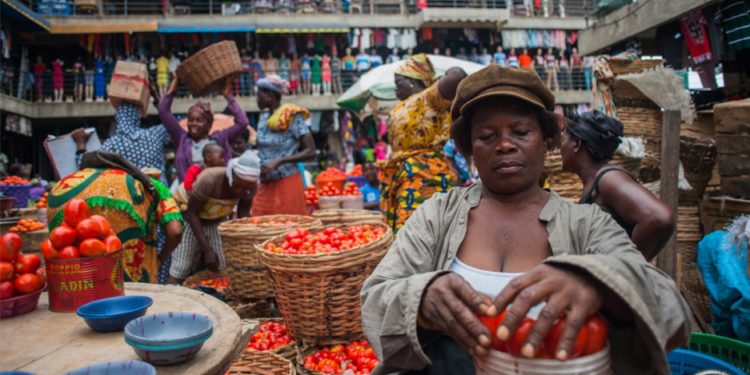Ghana’s annual inflation rate accelerated for the 16th straight month to 37.2% in September of 2022, from 33.9% in August. It was the highest reading since July of 2001.
Prices of imported goods (40.7%) accelerated faster than domestic items (35.8%), largely due to a weakening cedi.
Upward pressure came mostly from prices of housing & utilities (68.8%); transport (46.8%) and food products (36.8%). On a monthly basis, consumer prices increased by 2%.
Ghana’s statistics agency also announced changes to the way it calculates the data. The agency has shifted the reference year to 2021, from 2018, as well as increased the number of products, markets and outlets used to collect prices.
Price growth in the world’s second-largest cocoa exporter has been fueled by surging input, global food and energy costs and the cedi weakening more than 42% against the dollar this year.
The cedi’s depreciation and expectations that inflation will remain elevated persuaded the central bank to raise the benchmark interest rate by a surprise 250 basis points last week, bringing cumulative increases since November to 11 percentage points.
See Also:





